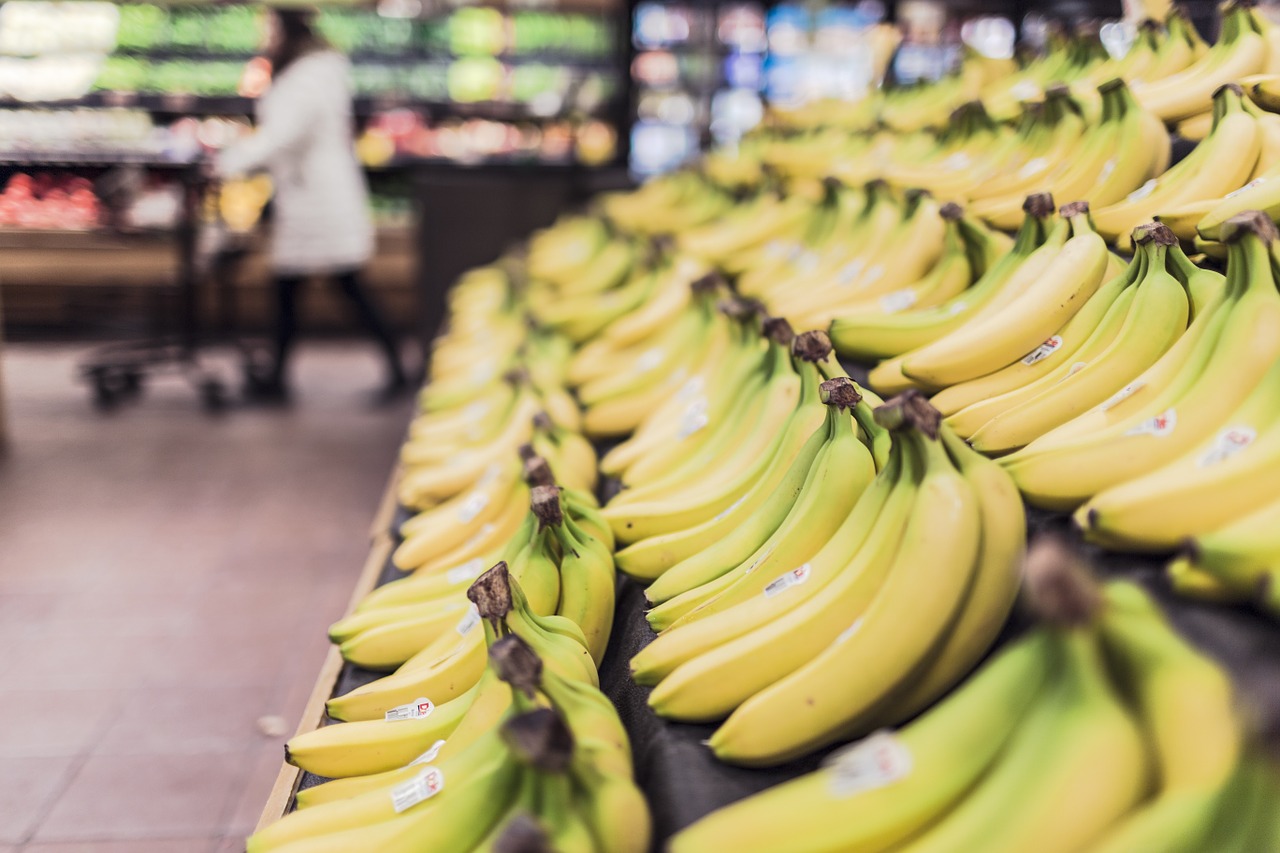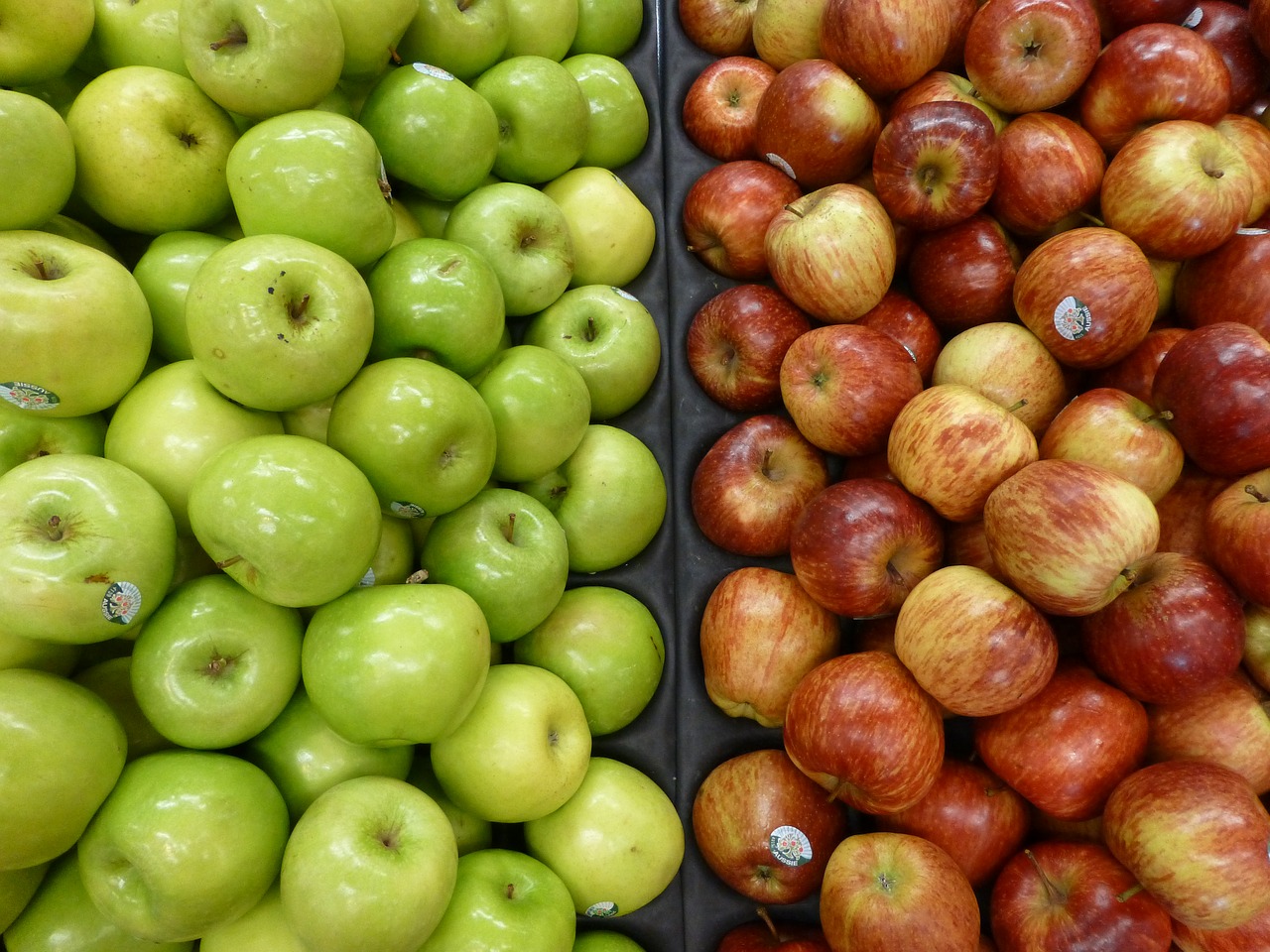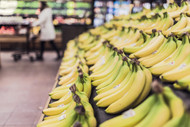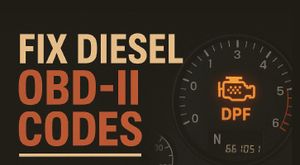The Problem with Produce Stickers
By on May 02 2018

If you're aiming for a balanced diet, your trip to the grocery store probably involves a stop by the produce section. There's nothing quite like picking up some fresh fruit and veg. Avocado? An Eggplant? Some apples? How about some bananas? Beyond the good for you label, these fruit and vegetables have something else in common: a tiny little produce label.
The little label with a big problem
Produce stickers, likely no larger than your thumbnail, are helpful at checkout because they carry important information: PLU codes. The International Federation for Produce Standards determines these price look-up (PLU) codes which are consistent throughout the world. If you buy a Golden Delicious apple in Arkansas, New York, or Germany, they'll all be #4021.
Most fresh produce doesn't come in packaging (although we know that this isn't always the case— remember when Wholefoods sold peeled oranges in plastic containers and the internet revolted?). Generally, this lack of packaging is great because it cuts down on waste, particularly of the plastic variety.
In the grand scheme of things, you might not even think that the PLU stickers would be problematic; they are so small and helpful in distinguishing produce varieties and costs. I mean, organic honey crisp apples can look awfully similar to their non-organic counterpart, although they may cost twice as much.
If you're buying a bunch of bananas or avocados, you might not put any thought into the sticker because its presence doesn't affect your consumption. Even with something like apples, we peel them off without a second thought. We throw the sticker in the trash, stick it to our lunchbox (or friend's back), or forget about it as it floats to the floor and sticks to the linoleum. In the end, we ultimately forget about that tiny bit of plastic which then ends up in the trash or in the environment.
Now, multiply that little sticker by all the produce in the world labeled in such a way. See the problem?
They're also proving to be problematic for composting facilities because these stickers, usually made from vinyl or other types of plastics, don't break down.

Moving towards less packaging and less waste
On one hand, you might still not see the cause for concern: they're so small, it's hardly worth worrying about and we should be more concerned with reducing the plastic consumption for much larger single-use plastic objects. But the small size is part of the larger argument: why are we wasting so much on something so little?
Forgoing these little stickers could save the world a substantial amount of plastic, energy, and CO2 emissions. In short: why waste the plastic when there are more efficient uses for it?
There is no denying that plastic is incredibly useful and its presence in our Petroleum Product of the Week series shows its diversity. But for many environmentalists and consumers alike, the call for less packaging is loud and clear. And the pesky sticker may be the place to start.
Natural branding
A Dutch organic supplier, Nature & More, and the Swedish grocery chain ICA are working together on an initiative to cut back on plastic sticker waste and instead try out some natural branding with laser-printed labels. Using a laser technique the Spanish firm Laser Food developed, organic sweet potatoes and avocados have been the pilot products because they tend to be problematic for sticky labels.
This laser branding works by removing some pigment from the outer layer of the skin without impacting quality or shelf life. While the technology itself isn't cheap, the process itself requires less than 1% of the energy used to manufacture the stickers.
The cost isn't the only obstacle in the way of making this a widespread, viable option. Currently, this labeling method doesn't work will all types of loose-sold produce. Oranges, for instance, have self-healing skin that simply grew over the laser impression during U.K. retailer Marks & Spencer's experimental trials with laser labeling.
While the switch from produce stickers to more natural and less wasteful alternatives may not be in the immediate future, it is apparent that there are enough groups looking into the matter at hand. There may come a time when you don't see any PLU stickers on your avocados the next time you want to make some toast.
Sources:
https://www.fastcompany.com/3067442/why-waste-plas...






